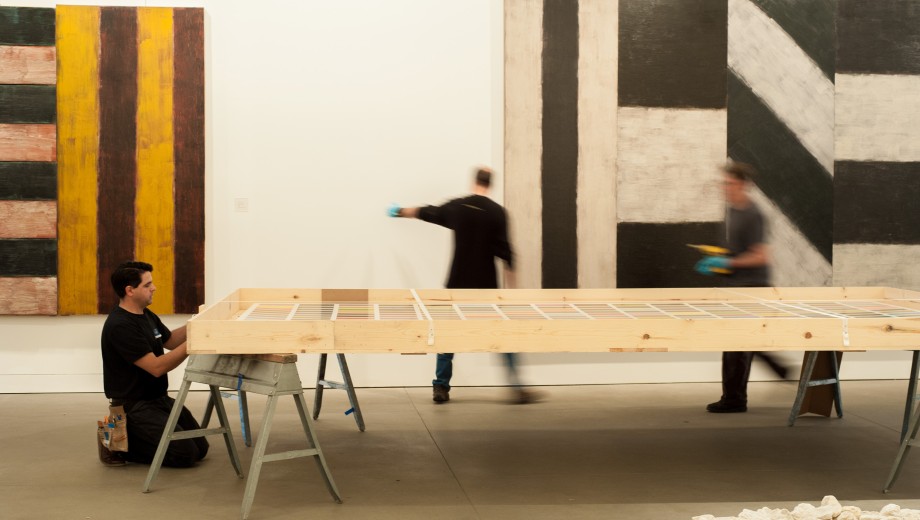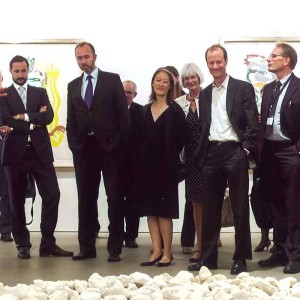For many graduate students, a master’s degree is the first step toward an eventual doctorate. But others—like Pauline Eveillard, AM’08—know from the beginning that their time in the academy comes with an expiration date. After graduating from Tufts in 2005 with a major in art history and a minor in Latin, Eveillard went to Tunisia on a Fulbright fellowship, and her master’s thesis on ancient Roman mosaics grew out of that experience. After finishing the Master of Arts Program in the Humanities (MAPH), Eveillard continued her work in ancient art with an internship at the antiquities department at Christie’s in her hometown of New York City. In 2009 she moved to the New York office of the World Monuments Fund, where she promotes the importance of preserving the world’s cultural heritage. She works with the organizaiton’s donor travel program and young members group, and organizes lectures and visits to preservation sites in New York City, such as a guided tour of the High Line by its structural engineer. “Long-term,” she says, “my goal is to further an understanding of preservation with people who are interested in culture. Our members are in diverse professions such as interior design, and finance, and law, and our programming—in a fun and engaging way—introduces people to the work we do.”
The business world has room for humanists too—as MAPH alumna Beth Gallagher, AM’02, can attest. Gallagher describes her work as “bringing the humanities to corporate America.” As director of community involvement at the Aon Corporation, Gallagher oversees the professional service firm’s philanthropic efforts and organizes volunteer activities. “At the end of the day,” she points out, “human beings work at all these huge multinational companies,” and people like her connect them with the world beyond downtown Chicago. She enjoys “providing the vehicle for my colleagues to get involved—for example, they wouldn’t be reading to second graders in Englewood or Humboldt Park without this platform.” She found her way into corporate giving after learning about it in a hybrid administrative and fundraising role at a social-service organization. She encourages other humanists to be similarly open-minded about their careers: “I just want to shout from the rooftops that working for ‘the man’ can be really fulfilling.”
Corporations can also provide a home for cultural resources. Laura Satersmoen, AM’86 (Art History), is executive director of the Fisher Art Foundation, housed within the San Francisco headquarters of clothing retailer Gap, Inc. “Most people’s reaction is, ‘You do what?’” she laughs. “It’s pretty unusual that a big corporation has this enormous, museum-quality collection in it.” What started out as a temporary position—“I was hired to assemble a database, which they thought it was going to take three months”—has turned into a 17-year career. Satersmoen is now overseeing the collection’s transition from Gap headquarters to the San Francisco Museum of Modern Art. She credits her success to influential mentors beginning in graduate school as well as her own willingness to be flexible. Satersmoen originally considered an academic-style career in a museum, “and I thought that was the only career path I could take,” she says. “But I know now that there are lots of things that can get you to interesting places.”
One such place is the John Templeton Foundation in Philadelphia, where Christopher Strawbridge, AM’98 (Middle Eastern Studies), has worked for nearly six years. Strawbridge had worked as a financial consultant during grad school and for a nonprofit before that. “I wanted to get back to the nonprofit world because I was interested in mission,” he says. “I had a great job doing consulting in Chicago, and we made very well-off people much more money—but I didn’t feel as though I was really making a difference in the world.” Templeton makes grants to researchers, including humanists at UChicago, investigating what it calls “the Big Questions”—complicated topics such as forgiveness or human virtue. As a planning and evaluation officer, Strawbridge helps evaluate the foundation’s impact and whether its grant-making efforts reflect organizational goals. He finds overlap between his work and the skills he learned at UChicago: “Grad school gave me the ability to aggregate and assimilate a lot of often ambiguous information very quickly and make something nontrivial of it.” That skill, he says, is “remarkably valuable in the foundation context.” Strawbridge’s career philosophy echoes a sentiment shared by his fellow alumni: “You still need to pay the bills, but isn’t it cooler to be working for an organization that has a point to it?”


